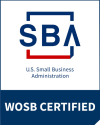Jean Murrell Adams, Esq.

Graduations are major childhood milestones and joyous family events. But did you know thatfor children with special education needs, graduations can also have important legal significance?From preschool to high school, here are a few examples of legal rights that impact children with disabilities at key educational transitions.
- “Graduating” from Regional Center
- Preschool Graduation
- Graduating from Elementary School to Middle School or Junior High
- Middle School Graduation
- High School Graduation
Regional Centers offer free testing and infant-toddlerservices for children from birth to three-years-old who have or may have or are at risk for developmental disabilities. Under an Individual Family Service Program (“IFSP”), children can receive a broad array of Early Intervention Services like speech, nursing services and occupational therapy to name a few.When children transition from Regional Center services into preschool, the IFSP services should generally transfer to an IEP (“Individualized Education Program”) after some additional testing.(Note that testing deadlines have been extended during COVID-19 school closures). Often, school districts improperly reduce or even eliminate some of these vital services. Parents can point to IFSP services and prior testing to resist service interruptions and cutbacks by school districts.
Perhaps the most important legal consequence when transitioning from an IFSP to an IEP is your child’s disability category or classification. This is the special education “label” that will be tattooed on your child’s school records and can influence educational programmingfor many years. For example, a child with multiple disabilities can be categorized as AUT (for an Autism Spectrum Disorder), SLI (for a Speech or Language Impairment) or ID (for an Intellectual Disability). The primary classification chosen by the IEP team can make a tremendous difference in the type, location and intensity of services offered. Ensure that the label matches your child’s primary disabling condition. Parents may request an Independent Educational Evaluation (“IEE”) at the school district’s expense if they have concerns regarding the appropriate classification.
Special education laws encourage inclusion.As much as possible, children who require special education should enter kindergarten and elementary school with general education peers in the least restrictive environment to the maximum extent appropriate to meet their needs.Among other things, free and appropriate services and supports, (such as, speech, occupational therapy, a 1:1 properly trained aide, etc.) and clear educational goals and objectives must be specified in the IEP. Listen very carefully to teacher concerns. Experienced teachers can detect learning differences after only a week or two of instruction. When a teacher suggests that your child may be having learning or behavioral problems, take action immediately. Many schools will refuse to test children for an IEP prior to the 2nd grade. Keep demanding immediate testing, in writing, if you believe your child needs specially-designed instruction. Again, parents can request an IEE if they disagree with the results of the school district’s tests.
The most frequent legal issue we encounter involving the transition from elementary school to middle school is IEP compliance. It is often very challenging for large public-school districts to ensure that the IEP developed when your child had only one general education teacher (with perhaps one Resource teacher) must now be followed by five or six teachers in middle school. Bullying is also a frequent concern and can result in a violation of special education laws. Some schools also begin reducing services or offering “step-downs” from an IEP to a typically weaker 504 Plan. Other districts quietly move students from a “graduation track” to a “certificate track” or place them in remedial classes that will make it extremely difficult to meet college entrance requirements.
Behavioral and mental health challenges can emerge or intensify and can lead to risky encounters with on-campus law enforcement. Children with IEPs have special protections against multiple suspensions and expulsion and may be entitled to fast-tracked manifestation determination hearings and additional testing and supports. If you have a child with an IEP in middle school and she is still struggling educationally, socially, emotionally or behaviorally, consider hiring a special education advocate or joining an on-line parent group in your area to help you navigate school district bureaucracy, gain access to technology, ensure teacher compliance and overcome other IEP obstacles.
If you thought IEP compliance in middle school was a challenge, hold on tight as high school is going to be a bumpy ride! Many parents report that high school teachers did not even realize their child even had an IEP. Generally, charter schools with relatively small class sizes can provide better IEP compliance for children who are on the mild to moderate range of their unique area of disability. However, these schools are usually ill-equipped to teach students with multiple, rare or more severe impairments. Ideally, parents should visit the high school and meet with teachers either in person or via video conference prior to middle school graduation. Schedules, transportation, toileting, climbing stairs and any other logistical issues should also be addressed before middle school graduation in order to facilitate compliance.Additional assessments may be warranted to identify and address transition to high school.
By the 9th grade, you must know whether or not your child is on track to earn a high school diploma or whether he is on the far more limited “certificate track”. Parents should only opt for a Certificate of Completion in exceptional circumstances as the consequences of never earning a high school diploma can have long-term financial impact. Again, this is when an educational advocate or parent who has already navigated special education in your district, can be a big help. Remember that grades count and disciplinary records matter.
At last the bittersweet moment has arrived. By March of your child’s senior year, you should know whether or not he will graduate with his class and earn his high school diploma. This applies even during COVID-19. One of the main goals of special education law is to prepare students with disabilities for further education, employment, and independent living. To ensure that this happens, the IEP team must develop and implement a Transition Plan before the student turns 16. Your child actively participates in this process and attends the Transition IEP meeting along with any other agencies such as the Regional Center or Department of Rehabilitation.
Some students may remain in the public-school system until they turn 22, however the vast majority will graduate around their 18th birthday. Either way, unless your child is conserved or gives you power-of-attorney, all educational rights will transfer to her when she turns 18. She can sign any IEP on her own and can make all other educational decisions without your knowledge or consent. You will no longer have the ability to access any of her educational records or make any changes to them. Nor can you pursue any compensatory education or services on her behalf. However, working together, parents and graduates may pursue remedies against their school district or charter school for a period of up to two years beyond graduation. You will likely need help from a very experienced special education attorney in your area to pursue post-graduation claims against school districts or charter schools. Check with your State Department of Education, the Council of Parent Attorneys and Advocates or simply ask Google, Alexa or Siri for a list of local special education lawyers.

